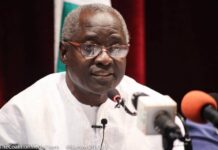by
Sankung Papa Susso, EdD.
Professor of Education
Touro College and University System
Email: [email protected]
________________________________________________________________
Between 2008 and 2014, school enrollment in The Gambia was as follows: Pre-school enrollment 32%, primary school enrollment 87%, and secondary enrollment 57%. Information was not available for tertiary education. Pupil per teacher ratio was 36:1 and primary school drop-out rate was 27%. Education spending between 2005 and 2014 was 4.1% of the national budget.
While the above numbers are outdated and may not reflect the full scope of other mitigating factors, they offer an important point of reference. One such example is a thematic development which underscored the values attached to each stage in a child’s educational attainment in The Gambia. Specifically, I find it interesting that primary education is the most important point in a child’s educational journey based on the above information. Therefore, a conclusion may be reached that primary education is more important to Gambians than pre-school and secondary education. Through qualitative inquiry, one may want to understand why a majority of children in The Gambia begin and end their educational journeys at the primary level. Additional questions may include: How is a child prepared for primary schooling in The Gambia? Why are more children dropping-out of school after the primary level rather than attempting secondary education? Who were the 27% of children who dropped out of primary school? What happened to that 27% after they dropped-out?
Answering the above questions may yield additional information that could inform national policy. It is important to note that The Gambia is not alone in its troubles with improving educational outcomes for schoolchildren. Rather, countries across the globe continue to look for innovative ways through which they can improve educational outcomes in reading, math, and science among other subjects that prepare children for twenty-first century skills. In a study that I published in 2016 entitled, Exploring Evidence-Based Instructional Strategies for the Education of Students with Interrupted Formal Education: A Phenomenological Study, I wrote the following statement:
In 2003, the U.S. came in fourth among low performing students and fourth among high performing students in reading proficiency. In 2009, the U.S. ranked fifth among low performing students and third among high performing students. In 2012, the U.S. was ranked fifth among low performing students and sixth among high performing students. Overall, the U.S. reduced its percentage of low performing students in reading from the year 2000 through 2012 by 1.3 percent. However, the nation also had a 4.3 percent drop in its percentage of high performing students within that same time period. Consequently, there was a net loss of three percent in performance output on PISA from the U.S. over a twelve-year period.
The Programme for International Student Assessment (PISA) that is mentioned above is an international benchmark assessment protocol that is administered every three years. Several countries, including the Group of Eight (G-8) nations, as well as members and observer countries within the Organization for Economic Cooperation and Development (OECD), take part in the PISA assessment. Both G-8 and OECD countries use their PISA assessment outcomes to propose national education policies in order to improve their student scores. For others, PISA offers another avenue of propaganda concerning nationalism and exceptionalism. However, what is more important is the use of such assessment outcomes to identify how each country’s schoolchildren fare when compared to children from other countries. With the above information, countries can develop frameworks to strengthen national standards in support of a rigorous curriculum. With rigor and attainable benchmarks, children will be prepared to compete in an ever increasing global economy, rather than dropping out of school.
HOW CAN THE UPCOMING PARLIAMENT MEET THE GAMBIA’S EDUCATIONAL CHALLENGES?
- Funding:
One of the factors responsible for a country’s performance in any assessment is funding. Countries that consider education as a priority, allocate adequate funds to support teaching and learning. As earlier revealed, The Gambia spent approximately 4.1% of its national budget on education. That means for every one hundred dalasi that the government spent, only four dalasi and one butut goes towards education. Compare such a number to, say, New York City. With a student population of 1.2 million, the New York City Department of Education operates on an annual budget of approximately $24 billion.
With so much money available to support students with disabilities, students who learn English as a New Language, students with interrupted formal education, talented and gifted students, and indigent students, the city continues to see gains in reading and math consistently. Similarly, Singapore used to be among the world’s lowest performing countries on the PISA assessment. However, it is now among the top performing countries because of targeted investments in education using data-driven policy proposals.
I wanted to bring the above point to the attention of the candidates running for parliament. The Gambia has long suffered from a lack of a strong knowledge base. Because of illiteracy in The Gambia, most schools are staffed with teachers from neighboring countries. Similarly, the judiciary is filled with judges from other countries because most Gambian’s lack the education and experience required to fulfill the mandates of jurisprudence. The incoming parliament should task itself with a broad review of the national agenda.
The executive branch has already set its agenda for growth, development, and reconciliation. The legislature has a similar task, even though it may not necessarily mirror the executive foresight. Such is the nature of democracy. With checks and balances, governments can work efficiently under legal parameters to improve the quality of their citizens’ lives. One function that the legislature should not be mired into, is a temptation to forego its responsibility and instead begin to function as the judiciary. Legislatures propose laws, executives enact such laws, and the judiciary interprets the laws as appropriate. Hence, the constitutionality of a law or lack thereof, is one for the judiciary to determine.
To support education, the incoming members of parliament should review the education budget. Such reviews should be conducted along with a review of education data from the Ministry of Education as to how best to support efforts to improve quality education across the nation. An appropriate budget that will sufficiently mirror the importance of schooling to the future of The Gambia should be proposed. Minuscule percentages such as 4.1% will not reverse the educational crisis in the country. Instead, it will only strength the trend that continues to support primary level education while ignoring pre-school, secondary, and tertiary education. We need to do better than the past as we move into a more prosperous future.
REFERENCES:
Susso, S. P. (2016). Exploring evidence-based instructional strategies for the education of students
with interrupted formal education: A phenomenological study (Dissertation). Cambridge College, Cambridge, MA. Retrieved on February 26, 2017 from
http://search.proquest.com/docview/1801724766
United Nations Development Programme, Human Development Reports. (2015). 2015 statistical
annex tables. Retrieved on February 21, 2017 from http://hdr.undp.org/en/content/human-development-index-hdi




















